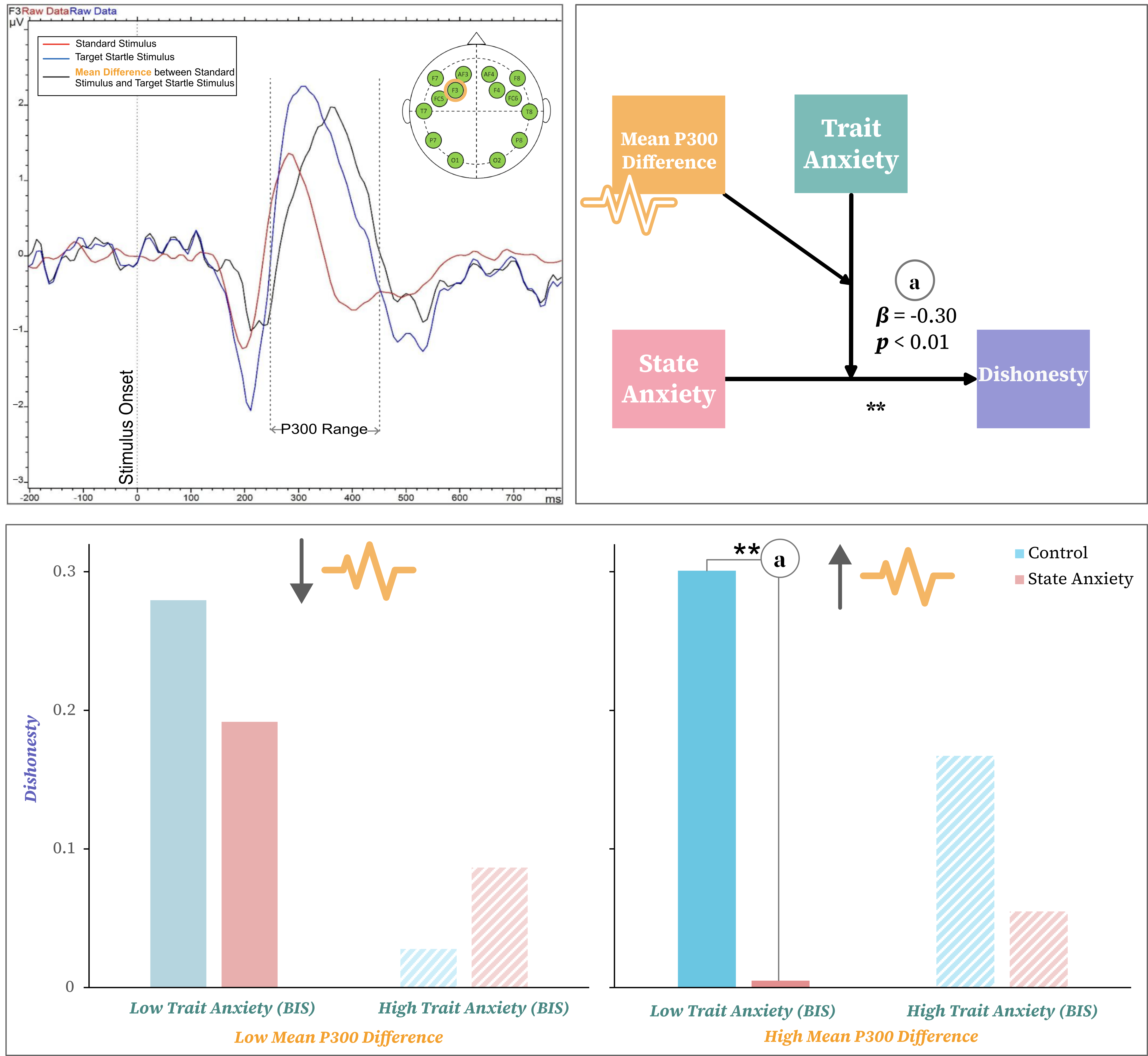Anxiety reduces Dishonesty in Low Trait Anxious Individuals: EEG Study
P300 ERP, Broken Promise Trust Game
Dishonesty in social interactions is a phenomenon of growing interest to social neuroscientists in understanding the neural and psychological mechanisms that underlie deceitful behavior. We know from previous studies that neural markers of trait anxiety predict reduced behavioral dishonesty, however it remains unknown how state anxiety, i.e., acute feelings of anxiousness, affects this relationship. Our study investigated the relationship between trait and state anxiety and dishonesty using the Broken Promise paradigm, i.e., modified trust game with an antecedent promise stage. Participants first completed a trait anxiety measure (BIS Scale) before being randomly assigned to control or state anxiety manipulation conditions, and then engaged in an auditory oddball passive listening task while wearing EEG headest to measure P300 amplitudes. They then participated in the Broken Promise game, designed to assess dishonesty in a direct monetary exchange interaction between two players with real life monetary consequences. We found that high trait anxiety was associated with lower dishonesty, while low trait anxiety individuals showed reduced dishonesty when experiencing state anxiety. Mean P300 amplitudes difference moderated this relationship, meaning low trait anxiety individuals in state anxiety condition with high mean P300 amplitude difference, i.e., evidence of increased state anxiety, show significantly higher decrease in dishonesty. The second part of results including mean P300 differences further strengthen and validate the relationship found in the first part of results, thus indicating an association of state anxiety in the relationship between trait anxiety and behavioral dishonesty.
